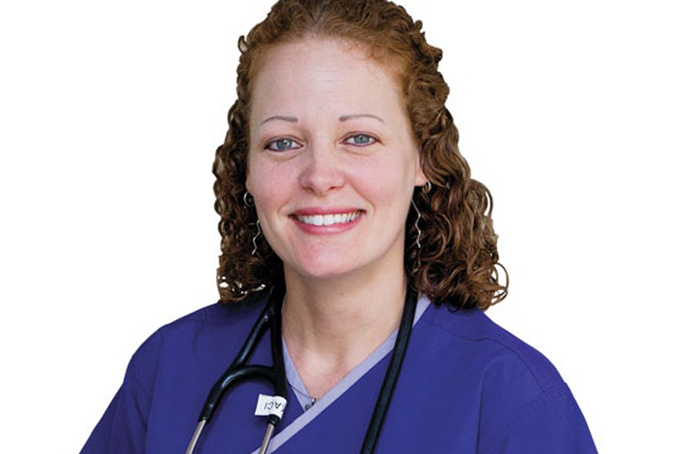
NEW YORK (AP) — The gulf between politicians and scientists over Ebola widened on Sunday as the nation’s top infectious-disease expert warned that the mandatory, 21-day quarantining of medical workers returning from West Africa is unnecessary and could discourage volunteers from traveling to the danger zone.
“The best way to protect us is to stop the epidemic in Africa, and we need those health care workers, so we do not want to put them in a position where it makes it very, very uncomfortable for them to even volunteer to go,” said Dr. Anthony Fauci, director of the National Institute of Allergy and Infectious Diseases.
Meanwhile, Kaci Hickox, the first nurse forcibly quarantined in New Jersey under the state’s new policy, said in a telephone interview with CNN that her isolation at a hospital was “inhumane,” adding: “We have to be very careful about letting politicians make health decisions.”
Saying the federal health guidelines are inadequate, the governors of New York and New Jersey announced a mandatory quarantine program Friday for medical workers and other arriving airline passengers who have had contact with Ebola victims in West Africa, and Illinois soon followed suit. Twenty-one days is the incubation period for Ebola.
New Jersey Gov. Chris Christie on Sunday defended quarantining as necessary to protect the public and predicted it “will become a national policy sooner rather than later.”
“I don’t believe when you’re dealing with something as serious as this that we can count on a voluntary system,” said Christie, who is expected to run for the Republican nomination for president in 2016. He added: “I absolutely have no second thoughts about it.”
Fauci made the rounds on five major Sunday morning talk shows to argue that policy should be driven by science — and that science says people with the virus are not contagious until symptoms appear. And even then, infection requires direct contact with bodily fluids.
He said that close monitoring of medical workers for symptoms is sufficient, and warned that forcibly separating them from others, or quarantining them, for three weeks could cripple the fight against the outbreak in West Africa — an argument that humanitarian medical organizations have also made.
“If we don’t have our people volunteering to go over there, then you’re going to have other countries that are not going to do it and then the epidemic will continue to roar,” Fauci said.
Christie, traveling the country as head of the Republican Governors Association, said he was not worried that quarantining might discourage volunteers.
Other than saying last week that those under quarantine could be confined to their homes or medical facilities, Christie and New York Gov. Andrew Cuomo have given no details on how the measure would be enforced and what would happen to those who refused to cooperate.
But Cuomo, who is up for re-election next week, said the order is legally enforceable, and expressed confidence that medical professionals would go along.
Earlier this month, four members of a family in Texas that Ebola victim Thomas Eric Duncan stayed with before he died were confined to their home under armed guard after failing to comply with a request not to leave their apartment. Also, 75 Dallas hospital workers were asked to sign legally binding documents in which they agreed not go to public places or use mass transit.
The New York-area quarantine measures were announced after Dr. Craig Spencer returned to New York City from treating Ebola victims in Guinea for Doctors Without Borders and was admitted to Bellevue Hospital Center last Thursday to be treated for Ebola. In the week after his return, he rode the subway, went bowling and ate at a restaurant.
Hospital officials did not immediately update his condition Sunday but said a day earlier that he was experiencing gastrointestinal symptoms and “entering the next phase of his illness.”
Hickox, the quarantined nurse who just returned from Sierra Leone, said she had no symptoms at all and tested negative for Ebola in a preliminary evaluation.
“It’s just a slippery slope, not a sound public health decision,” she said of the quarantine policy. “I want to be treated with compassion and humanity, and don’t feel I’ve been treated that way.”
Hickox has access to a computer, her cellphone, magazines and newspapers and has been allowed to have takeout food, New Jersey Health Department officials said.
Samantha Power, the U.S. ambassador to the United Nations who is on a trip to West Africa, said returning U.S. health care workers should be “treated like conquering heroes and not stigmatized for the tremendous work that they have done.”
In other developments, Florida Gov. Rick Scott ordered twice-daily monitoring for 21 days of anyone returning from the Ebola-stricken areas.
The World Health Organization said more than 10,000 people have been infected with Ebola in the outbreak that came to light last March, and nearly half of them have died, mostly in Guinea, Sierra Leone and Liberia.
Fauci appeared on “Fox News Sunday,” ABC’s “This Week, NBC’s “Meet the Press,” CBS’ “Face the Nation” and CNN’s “State of the Union.” Christie was interviewed on Fox and Power spoke to NBC.
___
Associated Press writers Bruce Shipkowski in Trenton, N.J., and Thomas Strong in Washington and Verena Dobnik in New York contributed to this report.